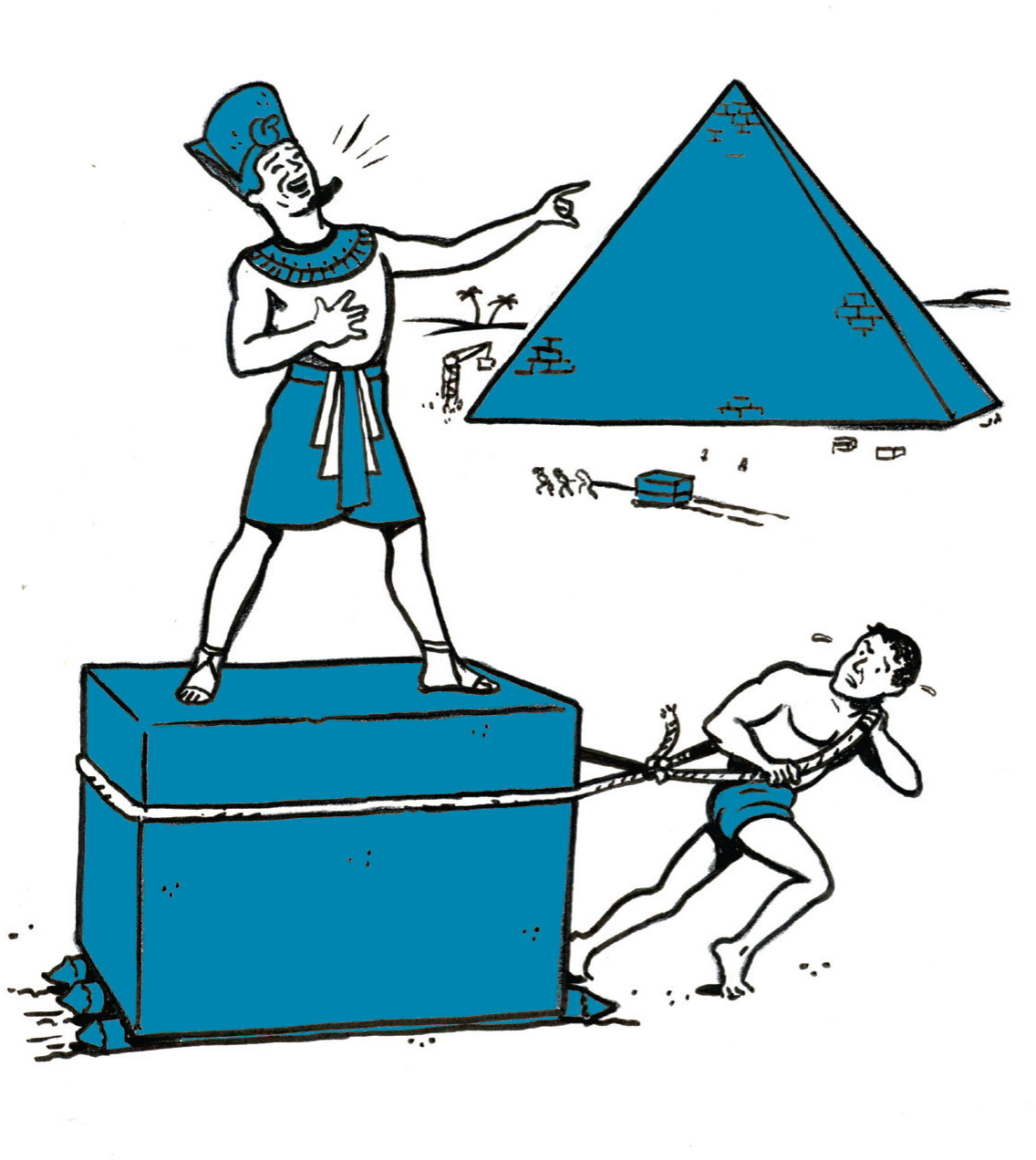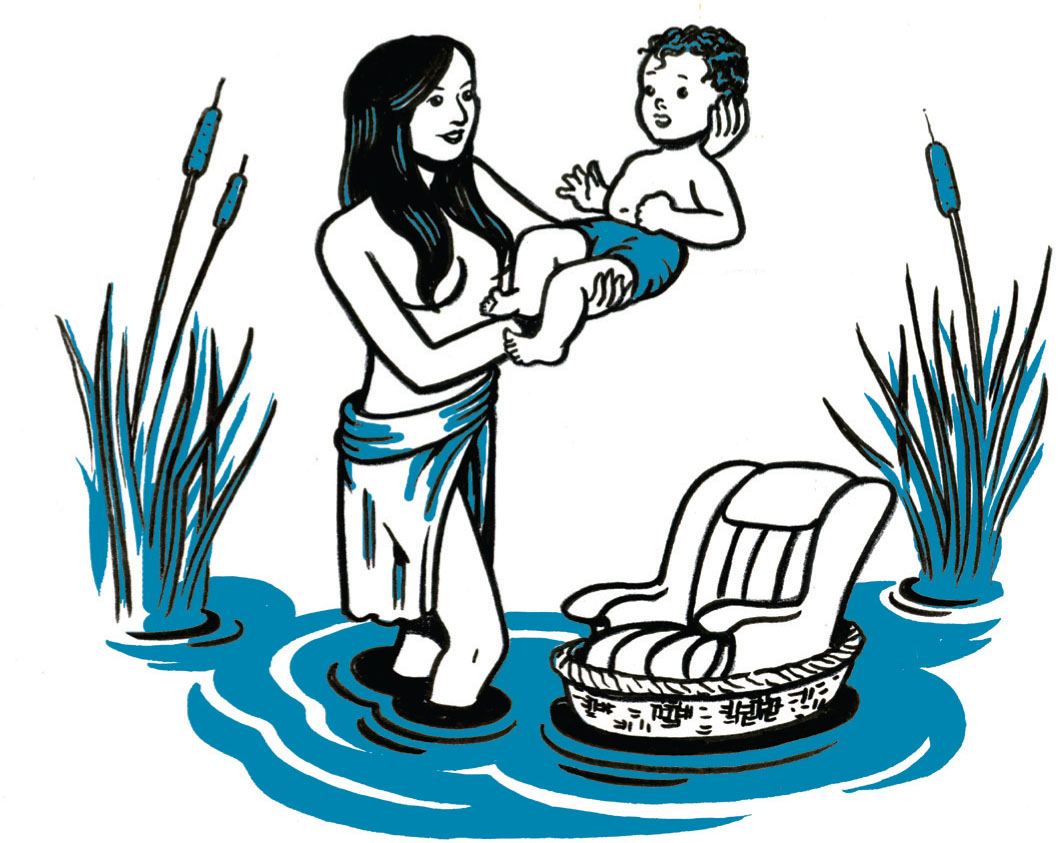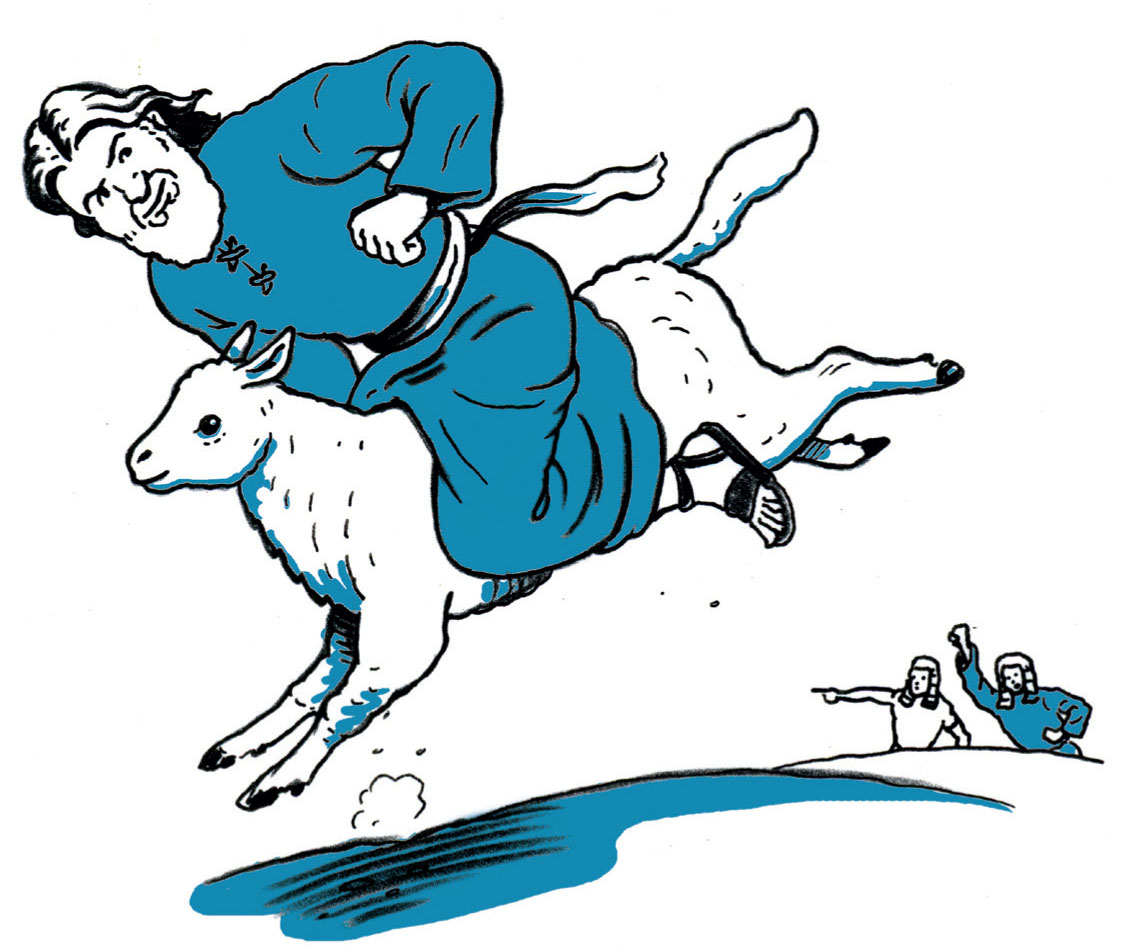

The Passover story begins thousands of years ago in the land of Egypt, which is located in the Middle East, unfortunately. Egypt was ruled by a man called the Pharaoh, who was very powerful. Like one time he said, “I want a pyramid,” and although it took many years, a group of Egyptian workers actually built him a pyramid. When the Pharaoh saw it, he was very surprised, because what he actually wanted was some soup, which in ancient Egyptian sounds very similar to the word for pyramid. So everybody had a good laugh, and then the Pharaoh had the workers executed, because that’s how embarrassed he was.
So anyway, around this time,1 a nice Jewish boy named Joseph arrived in Egypt, and he came to be an advisor to the Pharaoh because he had a degree in management. He advised the Pharaoh to build storehouses to store the grain, which the Pharaoh thought was a tremendous idea, because up to that point he had been storing the grain in the bathroom, and it was disgusting. The Pharaoh was so pleased that he invited Joseph to stay in Egypt and bring his relatives to hang out also. They became known as the Israelites, and they multiplied and prospered in various fields, although generally not team sports.
Years passed, and eventually the Pharaoh died. (He was buried in the pyramid, which by then the Egyptians jokingly referred to as “the Big Stone Soup.”) A new Pharaoh took over, and he turned out to be a real schmuck. He was afraid that the Israelites would become too powerful, so he made them into slaves, which for the Jewish people was a very difficult time requiring its own subheading in boldfaced type.

SLAVERY
Slavery totally sucked. The Pharaoh made the Israelites work from sunrise to sunset with no days off, not even Labor Day. The Israelites were forced to do hard work, such as hewing stones, which, as you would know if you ever hewed a stone, is no picnic. But the Israelites continued to multiply, so Pharaoh Schmuck decreed that every male baby born to an Israelite woman had to be cast into the River Nile, where they ran a risk of, at minimum, getting a cramp, particularly if they were cast too soon after eating a heavy meal.
There was an Israelite couple named Amram and Yocheved who had a male baby, but they didn’t want him to be cast into the Nile. So instead, they hid him for three months. Then they put him into a basket, and, to make absolutely sure he was safe and would not be cast into the Nile, they put the basket …
OK, they put the basket into the Nile. But it was OK because they used an ancient Egyptian car seat. Their daughter, Miriam, hid in the reeds and watched to see what happened next, which you will find out in the next paragraph.
As it happened, at that moment, the Pharaoh’s beautiful daughter was bathing in the Nile, which she preferred because the Pharaoh’s bathroom still smelled faintly of grain. She noticed this baby floating past in a basket, and she said, “I shall keep this baby, as apparently it does not belong to anybody!” Yes, she was beautiful, but dumber than a brick.
Miriam stepped out from behind the reeds and offered to raise the baby and have her mom (who of course was Yocheved, the baby’s real mother) be the nurse. The Pharaoh’s daughter was like, “Sure!” So, bottom line, this woman went to take a bath and came home with a baby and two new domestic employees. We can only imagine what she would have done with a credit card. She decided to name the baby Moses, which was an ancient Egyptian word meaning either drawn from water or soup.

MOSES GROWS UP
As the subheading above suggests, Moses grew up. He lived a life of luxury as the prince of Egypt in the Pharaoh’s palace, but he was upset about the treatment of the Israelites. One day, he saw an Egyptian beating a slave, so Moses killed him (the Egyptian) and had to flee from Egypt, making his escape by riding off on a speedy young sheep, which is where we get the expression “on the lamb.”
Moses went to the land of Midian, where he became a professional shepherd, which was a living. One day, he was shepherding on Mount Horeb when he saw a bush that was on fire and speaking in a voice that sounded kind of like Morgan Freeman’s. This turned out to be G-d, who told Moses that he was going to rescue the Israelites from slavery and take them to a land flowing with milk and honey. This raised several questions in Moses’s mind, such as:
1. Were the milk and honey flowing separately, or mixed together?
2. Were they flowing right on the ground?
3. Wouldn’t that attract insects?
But this did not seem like a good time to interrupt.
G-d told Moses that he should go back to Egypt and tell the Pharaoh to let the Israelites go or G-d would bring plagues down upon the Egyptians, and Moses said, “OK,” because when a divine, all-powerful, flaming shrubbery tells you to do something, you do it.